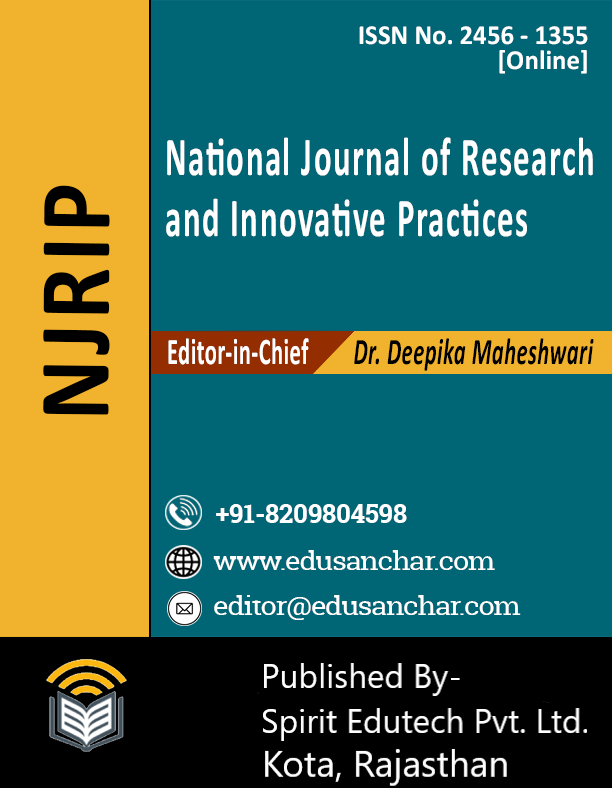
Digital Literacy as a Pathway to Inclusive Education: A Scholarly Exploration
Author Name :- MS. SHALINI YADAV,,
Journal type:- NJRIP-National Journal of Research and Innovative Practices
Research Field Area :- Research Field Area ; Volume 10, Issue 2, No. of Pages: 4
Your Research Paper Id :- 202501021704
Download Published File :- Click here
Abstraction :-
Keywords :-
Digital literacy, inclusive education, accessibility, technology in education, educational equity, digital divide.
References :-
• Hague, C., & Payton, S. (2010).
• Digital literacy across the curriculum. Futurelab. Hargittai, E. (2010).
• Digital na(t)ives? Variation in internet skills and uses among members of the "net generation." Sociological Inquiry, 80(1), 92-113. Koehler, M. J., & Mishra, P. (2009).
• What is technological pedagogical content knowledge (TPACK)? Contemporary Issues in Technology and Teacher Education, 9(1), 60-70. Meyer, A., Rose, D. H., & Gordon, D. (2014).
• Universal design for learning: Theory and practice. CAST. Mishra, P., & Koehler, M. J. (2006).
• Technological pedagogical content knowledge: A framework for teacher knowledge. Teachers College Record, 108(6), 1017-1054. OECD. (2021).
• Digital education outlook 2021: Pushing the frontiers with AI, blockchain, and robots. OECD Publishing. Passey, D. (2020).
• Digital technologies and learning in primary schools: Future proofing education for digital futures. Routledge. Rose, D. H., Hasselbring, T. S., Stahl, S., & Zabala, J. (2018).
• Assistive technology and universal design for learning: Two sides of the same coin. Handbook of Special Education Technology Research and Practice, 35-52. Seale, J. (2014).
• E-learning and disability in higher education: Accessibility research and practice. Routledge. Selwyn, N. (2016).
• Education and technology: Key issues and debates. Bloomsbury Publishing. UNESCO. (1994).
• The Salamanca statement and framework for action on special needs education. UNESCO. Van Dijk, J. (2020).
• The digital divide. Polity Press. Wanjala, M. (2018).
• Digital literacy and the education system in Kenya. African Journal of Education and Technology, 8(1), 12-24.


